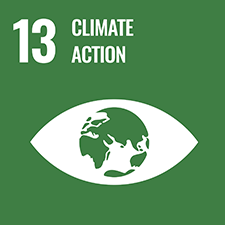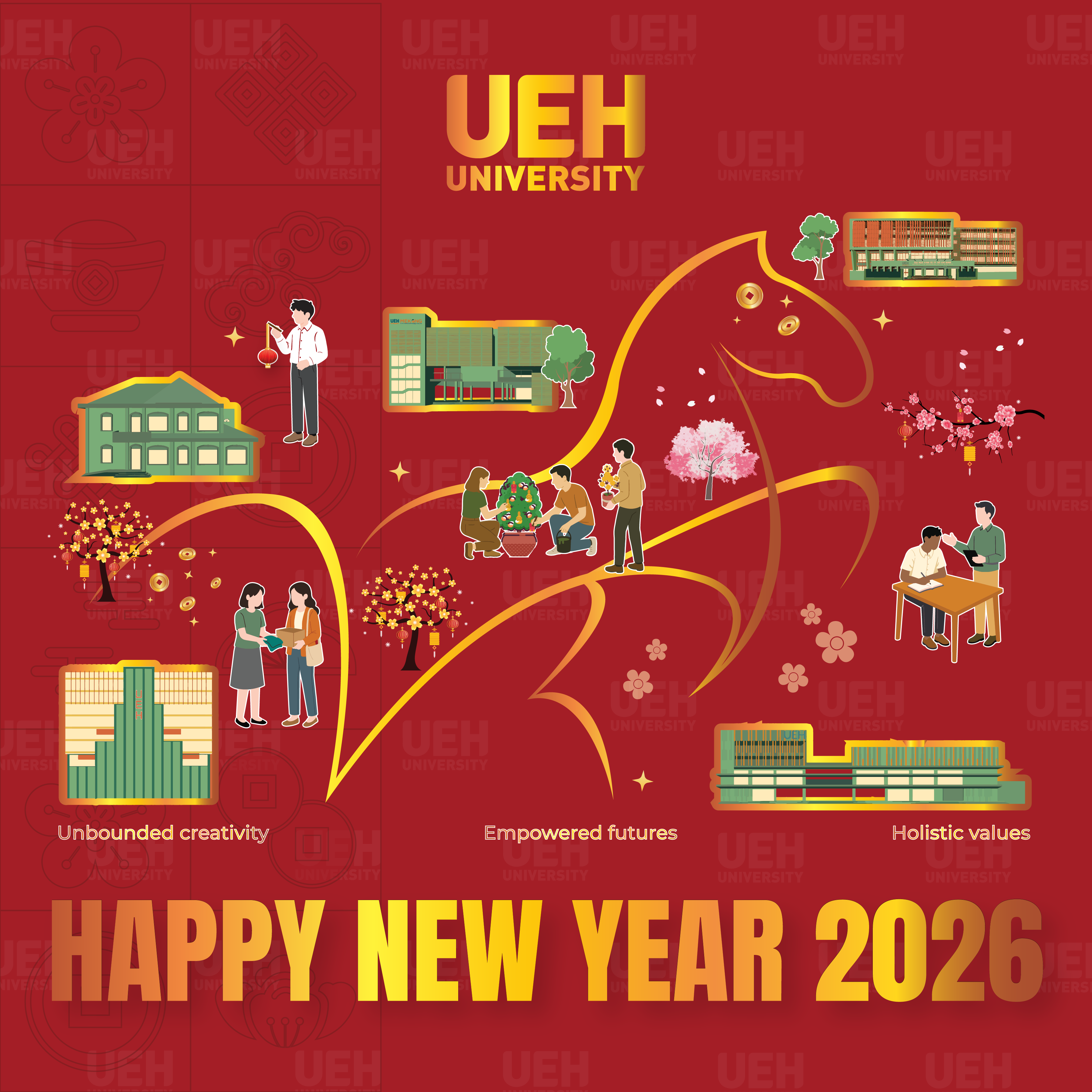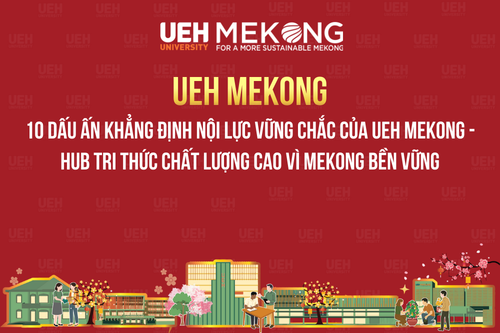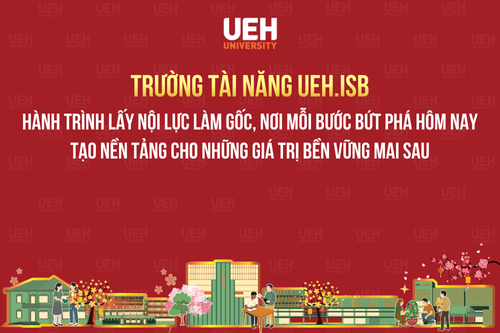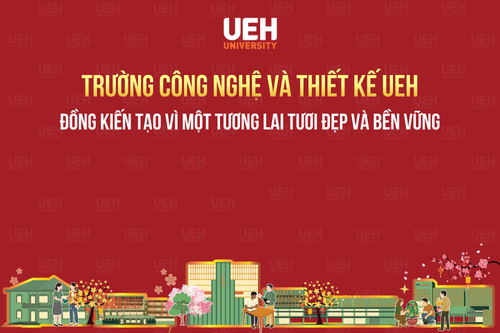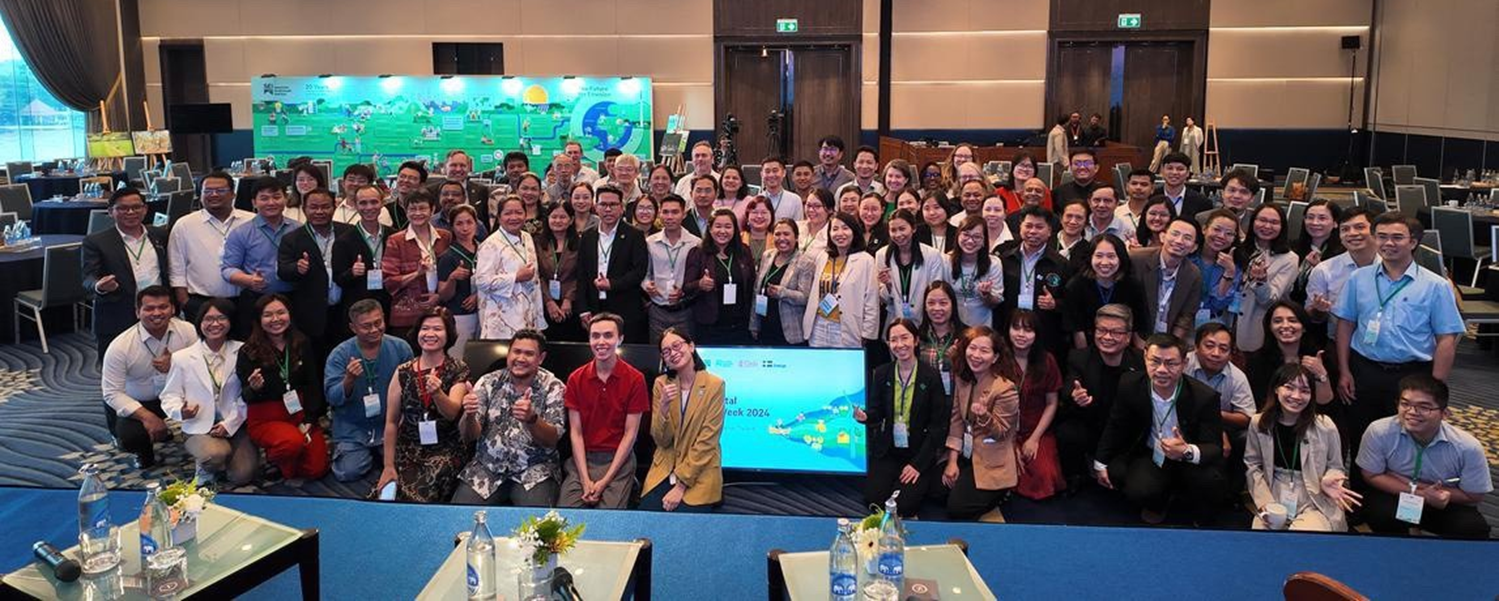
GS4Infra Project Team (UEH - CTU) participates in the Mekong Environment Week in Bangkok, Thailand, from October 7 to 10, 2024
22 Oct, 2024
From October 7 to 10, 2024, the GS4Infra project team was present in Bangkok to attend the 2024 Mekong Environment Week. The event brought together over 200 delegates from various sectors, including researchers, government organizations, and civil society groups. It created a vibrant forum for sharing knowledge, experiences, and finding joint solutions to the region’s environmental challenges.
GS4Infra is a cross-sectoral project funded by the Mekong Think Tank Programme, with the aim of identifying and proposing solutions to mitigate gender-sensitive aspects, including participation and benefit rights, in the policy-making and public sector development processes related to WEC infrastructure for water, energy and climate change, focusing on flood control dykes, irrigation canals and salinity prevention sluices. The project is implemented in Cu Lao Dung district, Soc Trang province (2024-2025), which is expected to become a model and can be replicated in the Lower Mekong region. The project is led by lecturers from the University of Economics Ho Chi Minh City, Can Tho University) and investigators from various majors such as Law, Sociology, and Biotechnology.
October 7: Introduction to the Sumernet and MTT networks
On the first day of the meeting, we were introduced to the SUMERNET network and the Mekong Thought Leadership and Research Network (MTT).
SUMERNET is a vast network of researchers and academics focused on sharing knowledge, promoting research cooperation, and building sustainable solutions for social and environmental issues. Established in 2005 with support from the Swedish government through the Swedish International Development Cooperation Agency (Sida), SUMERNET supports policy-relevant research and outreach to inform and engage decision-makers, policymakers, and stakeholders.
MTT is funded by the Department of Foreign Affairs and Trade (DFAT). It focuses on building a community of visionary leaders, fostering innovation, and addressing the region's complex challenges. MTT organizes forums, workshops, and training programs to enhance leadership capacity and connect researchers, policymakers, and entrepreneurs.
Both SUMERNET and MTT aim to build a sustainably developed Mekong region where humans and the environment coexist harmoniously. Through their activities, these networks contribute to addressing urgent issues such as climate change, water resource management, and socio-economic development.

Mekong Environment Week in Bangkok, Thailand, from October 6 to 11, with the participation of more than 200 delegates from various sectors
October 8: Forum on water, energy, and climate policy in the Mekong region
At the forum, policy-impacting organizations (PIOs) shared management experiences and discussed how to strengthen cooperation between stakeholders and policy-influencing organizations, which garnered much attention. In the context of increasingly complex climate change and the depletion of natural resources, sharing experiences and cooperation between PIOs is more critical than ever. Delegates provided practical examples of successful projects and shared valuable lessons learned during policy-impact activities. Besides environmental issues, the forum also focused on social topics such as gender equality and inclusive governance. Delegates presented new initiatives and solutions to effectively and sustainably address environmental problems, such as applying information technology, data sharing, promoting the circular economy, and raising community awareness.

Sharing from stakeholders in resource management and policy impact amid climate change
The cultural exchange night provided a warm and friendly space for program participants to connect and engage. The atmosphere was cozy and friendly, with unique cultural performances showcasing the region's diverse national identities. The awarding of certificates to the Season 3 Fellows was not only a recognition of their contributions but also a significant motivation for them to continue their efforts in the future. In addition to the cultural performances, delegates had the opportunity to participate in various activities and enjoy traditional cuisine. This was an opportunity for everyone to better understand the culture, people, and challenges facing the Mekong region.
October 9: Roundtable discussions on strengthening climate resilience in Southeast Asia: From scientific initiatives to policies and practices
A total of four parallel sessions were held with the participation of scientists, policymakers, business delegates, and non-governmental organizations. The speakers shared the latest research, practical experiences, and innovative solutions to address climate change and build a sustainable future. For example, during the session on green energy transition, delegates discussed the potential of renewable energy, energy efficiency, and supportive policies to accelerate the transition. The discussions were open and interactive, with many questions and contributions from the participants.
In the evening, there was a special dinner celebrating SEI Asia’s 20th anniversary. Over the past 20 years, SEI Asia has made significant contributions to research and climate change response in the Asian region. The celebration was an opportunity to reflect on the achievements and look toward new goals for the future.
October 10: MTT Networking Space - Capacity Building for Organizations
Participants were provided with in-depth knowledge about the principles and practices of co-creation. This trend encourages a balanced combination of theory and practice. Leading experts in the field shared in-depth knowledge about the principles and methods of co-creation, along with real-life examples of successfully applying this model in various projects.

Lessons learnt from the community in empowering change agents to enhance WEC research and policy interface in the Mekong region.
Conclusion
The 2024 Mekong Environment Week was a successful forum, providing GS4Infra with valuable knowledge and relationships to implement its project effectively. We believe that collaboration and experience-sharing between stakeholders will contribute to a more sustainable future for the Mekong region. The GS4Infra team had the opportunity to share about their project, listen to experiences from other projects, and received much interest and support from the delegates.
News and photos: GS4Infra Team, UEH Department of Communications and Partnerships

